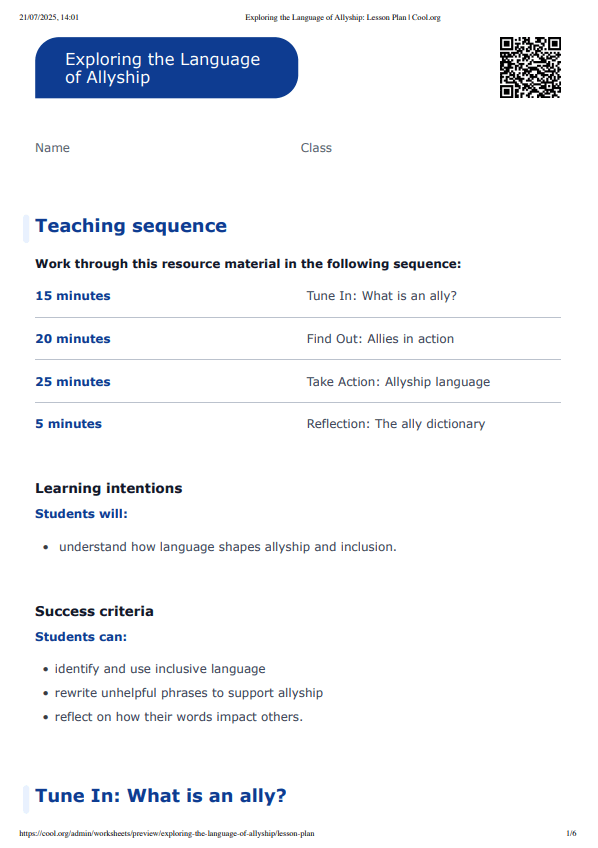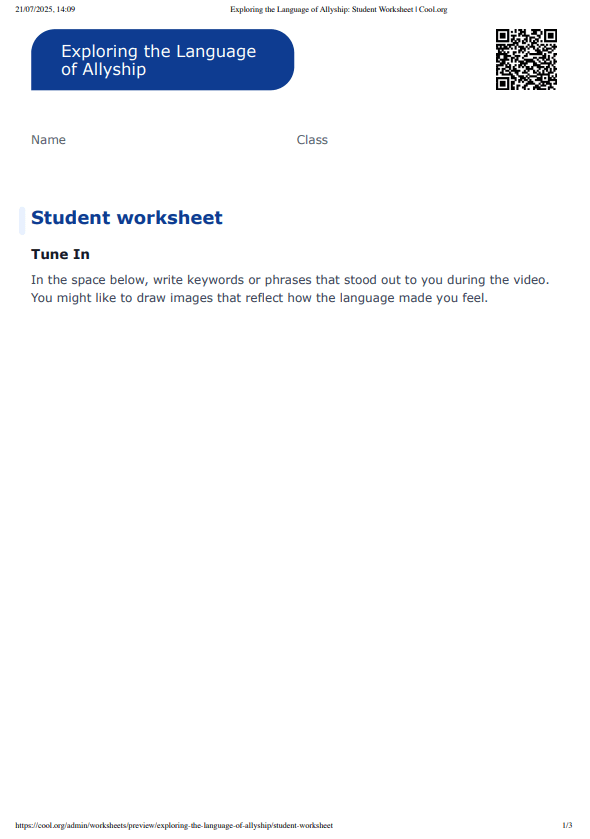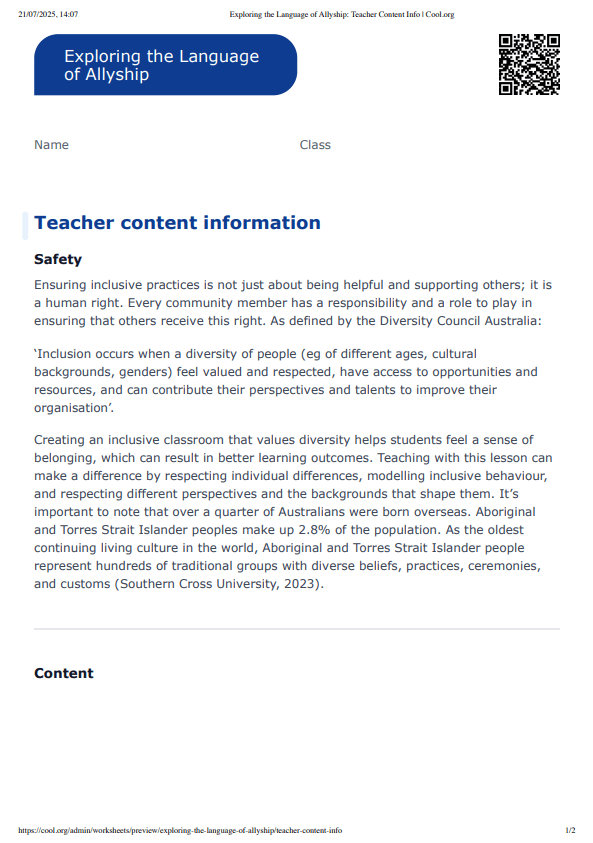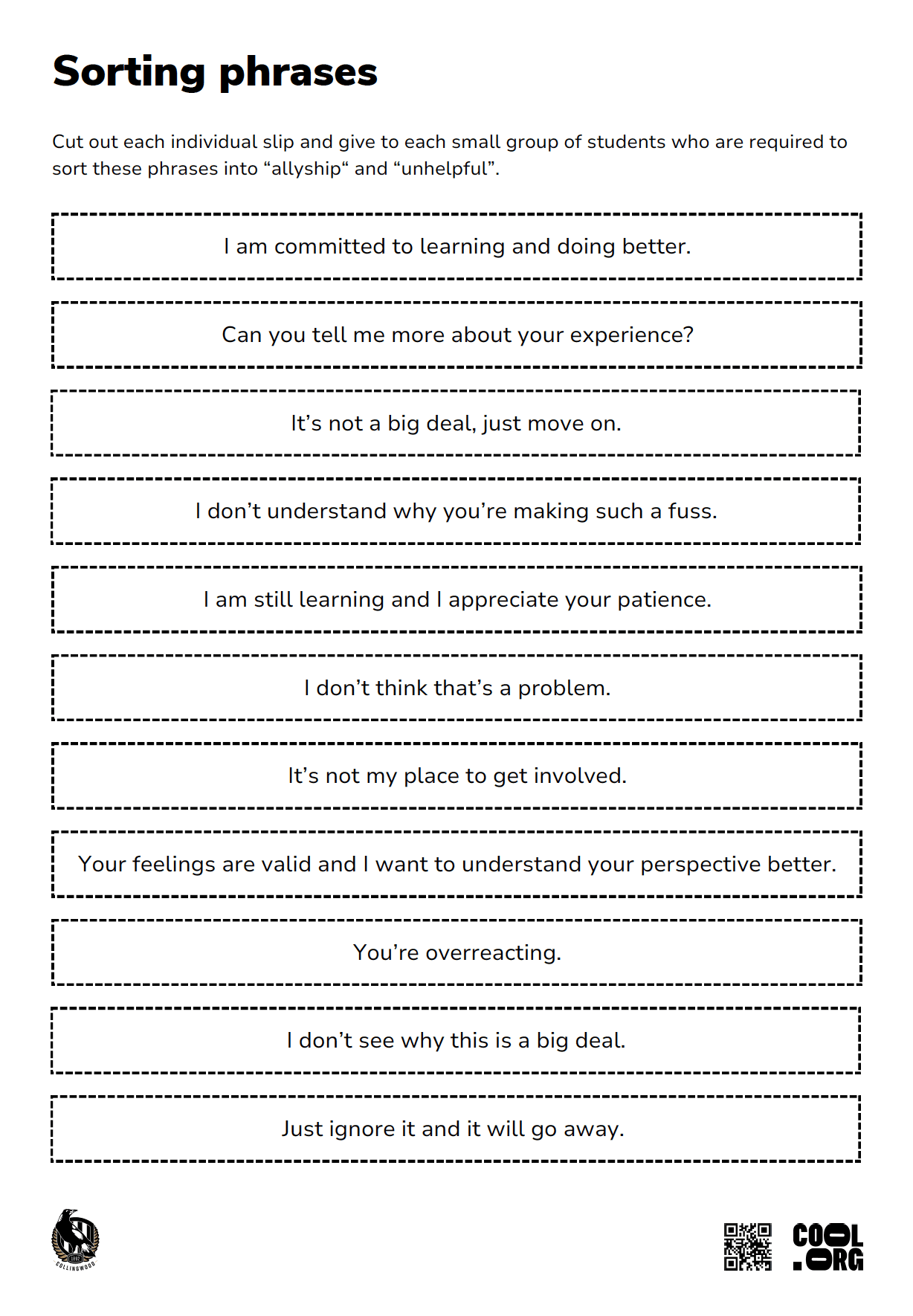Learning intentions
Students will:
- understand how language shapes allyship and inclusion.
Success criteria
Students can:
- identify and use inclusive language
- rewrite unhelpful phrases to support allyship
- reflect on how their words impact others.

Lesson Plan

Student Worksheet

Teacher Content Info

Sorting Phrases Activity Sheet
